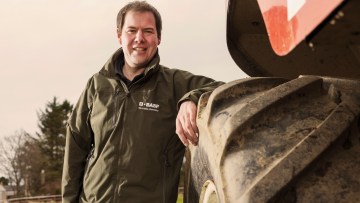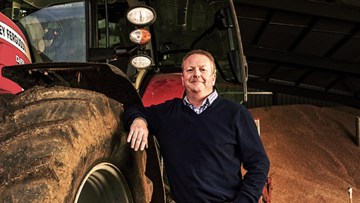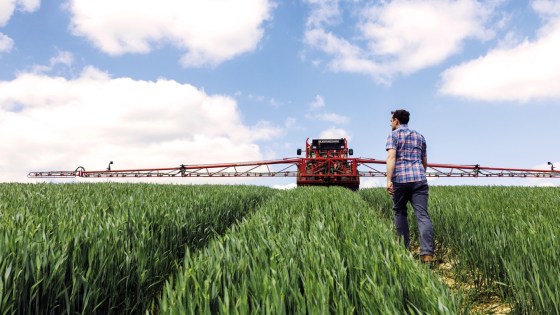Wheat Disease Control
This season, the relentless wet weather coupled with mild winter temperatures has not only produced a high level of Septoria inoculum in the lower canopy, but there is also plenty of yellow and brown rust about.
Correct timing of T1s has been challenging, due to weather windows and variable crop growth stages, resulting in a compromised application for many. T2 will see a need for a proven broad-spectrum fungicide with strong protectant and curative activity.
Delivering robust Septoria, yellow rust and brown rust control, and proven over multiple high-pressure seasons, Revystar® XE is the T2 choice you can rely on.

Why Revystar XE is well suited to T2 this spring?
- Revystar XE at 1.0 l/ha is proven over several seasons and offers the broadest spectrum of disease control at T2, including strong curative and protectant activity against Septoria
- Revystar XE has strong activity on brown rust and will protect against this disease well at T2. Where brown rust is established and sporulating, growers may need to add additional tebuconazole for rapid knockdown
- Revystar XE is supported down to 100 l/ha water volume and offers excellent tank mix compatibility and rainfastness, helping to ease pressure on workloads
- Revysol is the only effective azole for the control of Septoria and is key to a resistance management programme
Managing Winter Wheat Crops – Spring 2024 Webinar
Catch up on our latest webinar where Dr Aoife O’Driscoll from NIAB presents new data on variable leaf layer emergence and implications and advice for spring 2024, Jared Bonner from BASF explores manipulating the Septoria epidemic, and Steve Dennis from BASF discusses resilient disease control.
REVYSTORIES
Over the last couple of years, we’ve had the pleasure to find out more about some of our Real Results Circle growers’ farming experiences and their stories of using Revystar XE. Explore the map and pages below to find out more.














































